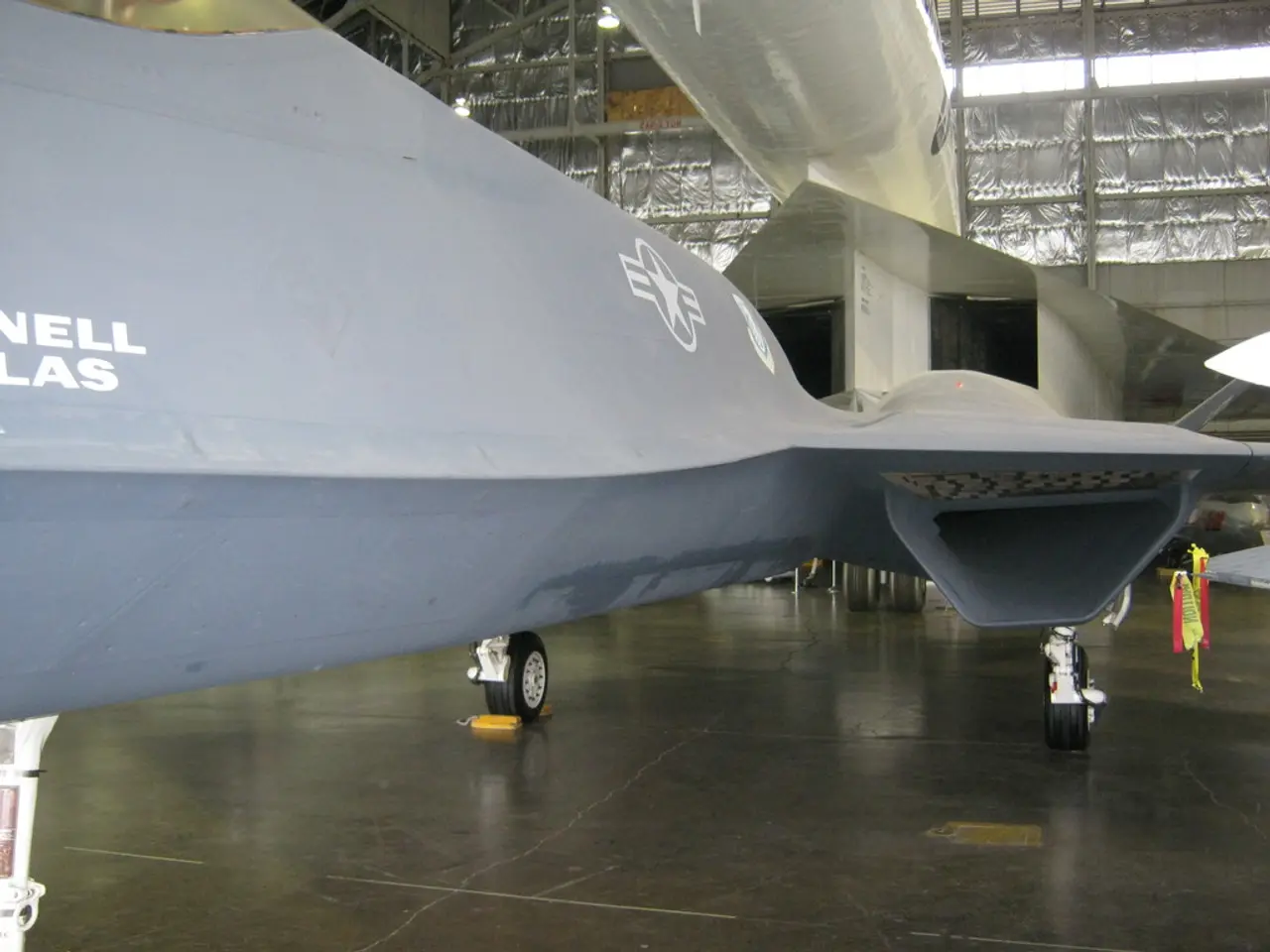Thai Airways experiences an impressive 216% surge in stock value on its return to trading following a five-year absence.
In a remarkable turnaround, Thai Airways International Public Company Limited (THAI) has demonstrated remarkable financial performance and ambitious expansion plans following its successful business rehabilitation and return to the Stock Exchange of Thailand (SET) in August 2025.
Financial Performance
THAI's financial performance in the post-rehabilitation period has been impressive. The airline posted a net profit of approximately 12.13 billion baht in Q2 2025, a dramatic increase from 306 million baht in Q2 2024 and 9.83 billion baht in the previous quarter. This surge was driven by cheaper jet fuel, strong passenger growth (4.2% YoY), and operational efficiencies.
For the first half of 2025, THAI’s revenue hit 96.45 billion baht, up 7.2% year-on-year, with a net profit soaring 702% to about 21.97 billion baht. The airline achieved an EBIT margin of 22.7% with operating profit before finance costs rising 71.8% to 10.18 billion baht in Q2 2025.
Key balance sheet improvements include over 50 billion baht in positive shareholders' equity, 152 billion baht in cash reserves, and a healthy debt-to-equity ratio of 2.2x as of early 2025, ensuring strong liquidity and debt coverage for the next 12 years.
Expansion and Strategic Outlook
THAI has ambitious plans for expansion and modernization. The airline aims for a major fleet expansion targeting 150 aircraft by 2033, comprising approximately 60% Boeing and 40% Airbus planes. This fleet growth aims to increase THAI’s market share at Suvarnabhumi Airport from 26% to 35% by 2029, supporting new routes and stronger competitive positioning.
THAI targets 400 billion baht in revenue by 2033, reflecting confidence in sustainable growth and market recovery. The company has streamlined its fleet types from eight to four, invested in AI-driven maintenance and digital transformation, and established strategic partnerships (e.g., with Turkish Airlines), aligning with long-term goals including net-zero emissions by 2065.
The company has completed a capital restructuring to restore its financial health, enabling a successful relisting on the SET with shares opening at 10.50 baht, exceeding analyst expectations. On its debut trading day, Thai Airways shares ended at 10.30 baht per share, marking a slight dip from their opening price of 10.50 baht.
Dithanop Vattanawakin, a fundamental investment analyst at Krungsri Securities, emphasized the strengthened financial position of Thai Airways following rehabilitation. Krungsri Securities has set a target price of 7.65 baht per share for Thai Airways, based on an EV/EBITDA multiple of 4.5 times for Asian airline industry peers. The analyst projects normal profits of approximately 20 billion baht for Thai Airways, based on its performance in 2023 and 2024.
In summary, post-rehabilitation, Thai Airways has returned to robust profitability with substantial operational improvements and strategic initiatives focused on fleet expansion, market share growth, revenue targets, and technological advancements, positioning it strongly for future growth in the competitive aviation sector.
- The strong financial performance of Thai Airways International Public Company Limited (THAI) in the aviation sector has garnered attention, with the company reporting a net profit of 12.13 billion baht in Q2 2025, a significant increase from previous years.
- In line with its financial success, THAI has an ambitious expansion plan, aiming to increase its market share at Suvarnabhumi Airport to 35% by 2029 by targeting a major fleet expansion to 150 aircraft by 2033.
- Key to this expansion is the strategic investment in AI-driven maintenance and digital transformation, as well as the establishment of partnerships with industry leaders, such as Turkish Airlines, to support net-zero emissions by 2065.
- The restructuring of THAI's capital has been successful, enabling a relisting on the Stock Exchange of Thailand (SET) and attracting investors, with a target price of 7.65 baht per share set by Krungsri Securities, based on the company's strong financial position and projected future growth in the international economy and business.




